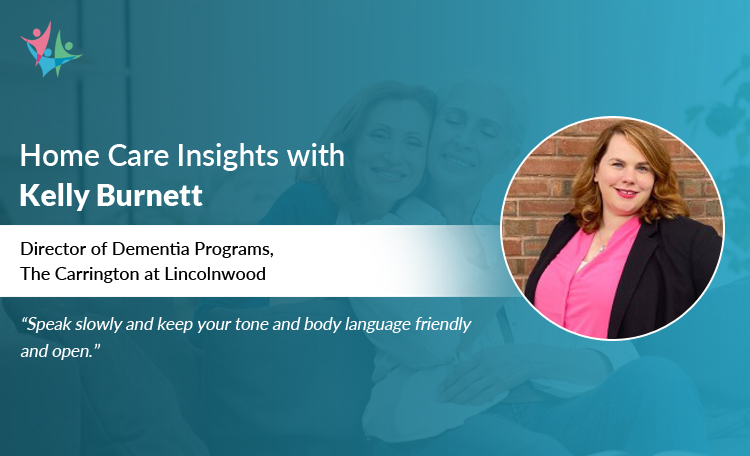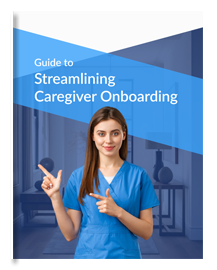In Conversation with Kelly Burnett to Bring Her Insights on Supporting Individuals with Dementia
Understanding the unique challenges faced by individuals with dementia helps provide person-centered care, tailoring the support to their individual needs. Acknowledge their feelings and see the world from their perspective to promote inclusion and value.
The hard-hitting reality of dementia is that it alters an individual’s sense of identity. Certain hobbies and relationships majorly contribute to how they perceive themselves. Caregivers, friends, and family play a crucial role in shaping this self-image.
Further, individuals with dementia use various coping strategies based on practical, social, emotional, and health-related approaches. Understand and respect these strategies to improve their ability to live fuller lives.
Facilitate them to use these strategies. It will make them independent and in turn, maximize their abilities to remain active and engaged. Focus on what individuals with dementia can still do, and as such, empower them to lead fulfilling lives.
To shed some light on the same, we interviewed a home care industry expert to bring her perspective on supporting individuals with dementia.

Who Did We Interview?
Kelly brings a wealth of knowledge from her extensive experience in long-term care, assisted living, and memory care. Her expertise lies in Alzheimer’s care, program development, and elder care. Kelly is also adept at volunteer recruiting, which enhances the support and services provided to residents.
With over 15 years of experience in the care domain, she is committed to dedicating her life to improving the lives of seniors and individuals with memory-related conditions.
Let’s get started with knowing what our expert thinks of the home care industry:
Question 1: What, in your opinion, can caregivers do to support seniors with dementia?
Caregivers can support people with dementia (PwD) by being kind, patient, and compassionate. Care partners should follow the lead of the PwD and meet them in their reality. Don’t argue with them!
Question 2: Do individuals with dementia need to make lifestyle changes to minimize the impact?
Exercise, socialization, and following the MIND (Mediterranean-DASH Intervention for Neurodegenerative Delay) diet positively impact PwD.
The MIND Diet is based on a combination of the Mediterranean diet and DASH diet, and focuses on the consumption of leafy green vegetables, fish, blueberries, nuts, and whole grains, with a minimum focus on red meat and dairy.
Question 3: How should family members and caregivers communicate with individuals with dementia?
Speak slowly! It can take up to 15 seconds for PwD in the later stages of the condition to process what’s being said. A lower tone of voice is better received.
Introduce yourself by name each time and use the individual’s preferred name. Keep your tone and body language friendly and open.
Question 4: Do caregivers and family members need to take steps to make the elderly’s house dementia friendly? (You can talk about making houses safe to prevent hazards).
Yes. Keep the space friendly, functional, and familiar. Minimize trip hazards and pair down clothing options.
Question 5: What advice do you give to caregivers dealing with dementia older adults?
Build a support team. Find a support group. It is not an easy path to walk on, and finding others to lean on is essential. Every day brings something new, and sometimes, we need to take a step back, take a deep breath, and reframe the situation—do not argue with the PwD.
This person is living with a failing brain-they are not trying to upset you or “be bad”. People living with dementia are doing the best they can with what they have left.
In Conclusion
Supporting individuals with dementia goes beyond managing their condition. Caregivers and family members become partners in their reality, facilitating a safe and familiar environment with clear communication.
It includes healthy lifestyle changes like the MIND diet and exercise but also prioritizing patience and compassion. The key is to remember that the person with dementia is doing their best, and caregivers must support themselves to navigate this journey effectively.
